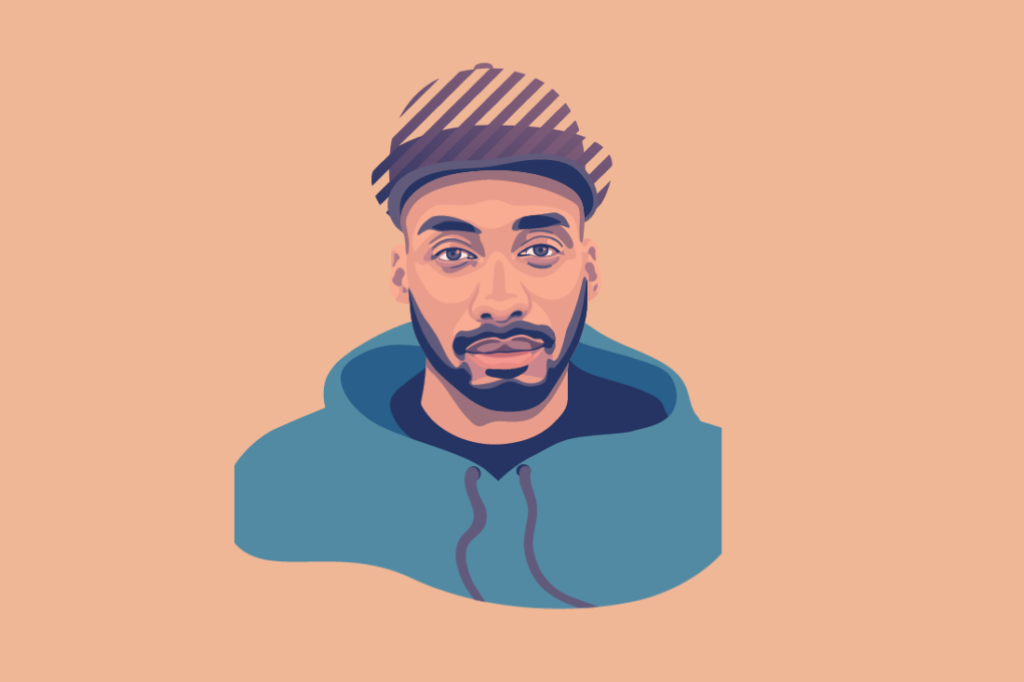His given name is Richard Williams, but you probably know the filmmaker, poet, motivational speaker and activist from St. Louis as Prince Ea. You’ve probably seen one of his videos circling social media without realizing it. His content goes viral frequently.
His most-watched video on YouTube was uploaded five years ago. It’s a three-and-a-half minute spoken word poem called “Can We Auto-Correct Humanity?” It has more than 22 million views. In the video, Prince Ea is standing near the shoreline. He looks down at a phone and then up at the camera with an intense but kind gaze.
The video starts like this: “Did you know the average person spends four years of his life looking down at his cell phone? Kind of ironic, ain’t it? How these touch screens can make us lose touch? But it’s no wonder in a world filled with iMacs, iPads and iPhones—so many ‘i’s’; so many selfies, not enough ‘us’s’ and ‘we’s.’ ”
The video ends with, “Call me crazy, but I imagine a world where we smile when we have low batteries, because that means we’ll be one bar closer to humanity.”
As beautiful as the message might be, the reality is that Prince Ea found success using the same social media platforms that he cites as the reason for much of the disconnect and unhappiness that people are feeling. (He refers to Facebook, where he has more than 15 million followers, as the “anti-social network” in the video.)
For many in the personal development industry, social media is part of the game. For him, it’s a way to change a negative into a positive. If you can go viral with a video like “Everybody dies, but not everybody lives,” then change can happen from within—a familiar theme in personal development since its beginnings.
Prince Ea once planned to be a rapper—the greatest rapper. But in trying to secure that goal, he found only suffering. He lost touch with the message he was trying to deliver with his music, often comparing himself to other artists and worrying whether he was falling behind.
The unhappiness became unbearable and he stopped making music. With a degree in anthropology, he turned to knowledge as a cure, finding his own growth path in ancient Eastern spiritual texts like the Bhagavad-Gita and the Tao te Ching. He learned that happiness isn’t something you can achieve, but rather something that occurs when you accept where you are at that moment. Happiness isn’t doing but being. He felt inspired to share what he learned, tackling the hip-hop industry first.
In 2009, Prince Ea launched the “Make SMART Cool” movement, which stands for “sophisticated minds and revolutionizing thought.” The movement caught on, garnering support and promotion from artists and producers including record label So So Def producer Mike Kalombo. He began creating inspirational, thought-provoking videos. Some were professionally edited while others were in-the-moment videos shot from a phone. It resonated.
As of publication, the 31-year-old has a cumulative social media following of nearly 30 million. He has been named to 30-under-30 lists by both SUCCESS and Forbes. He’s appeared on Oprah’s Super Soul Sundays. He travels internationally to speak to underprivileged youth on topics of self-confidence, passion, love and connection. He’s made it his mission to “reach every single heart on the planet to show them that at our core we are Love, we are free, and we are one.”
But Prince Ea doesn’t just cover the feel-good, inspiration stuff made for Instagram’s highlight reels. And it’s not all based in spirituality either. Those are just two of the gateways he uses to get people in the door. Many of his videos have tackled hot-button issues, including the Michael Brown shooting, the 2016 election and terrorism.
He explains delicate and complex issues with grace and without convoluted language. In one, he says the current political climate is a blessing. He explains it like this: When the body is sick, it doesn’t (typically) die without warning. It gives off symptoms of the underlying issue. If we ignore the symptoms, our body will continue to deteriorate until death. Sometimes we have the option to take a pill to alleviate the symptoms, but it doesn’t fix the underlying issue. Our country is sick, Prince Ea argues. If we continue to take pills that alleviate this or that social or political symptom, it might feel better for a brief time, but there are larger underlying issues that must be addressed for us to be well again.
The videos resonate not just because of their relevancy or the straightforward way that Prince Ea delivers a message, but also because they force you to think, to re-evaluate convictions you once held and whether those convictions are still valid when presented with alternate perspectives. With more than 200 million total views, he appears to be on to something.
Meet the other New Thought Leaders:
This article originally appeared in the March/April 2020 issue of SUCCESS magazine.
Illustration by Hanane Kai






















